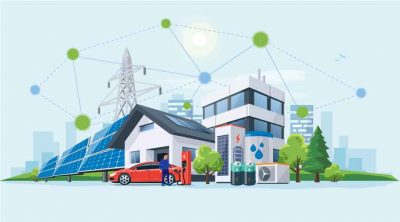Electricity is rapidly becoming the energy source of choice, supplanting traditional fossil fuels and natural gas in various industries. To encourage businesses to embrace electrification, improve energy efficiency, and reduce reliance on fossil fuels, a new tax incentive has been introduced, known as the Small Business Energy Incentive.
This initiative is part of ongoing efforts to prompt small and medium-sized enterprises (SMEs) to adopt sustainable and energy-efficient practices. The program offers a substantial tax deduction to SMEs with an annual turnover of less than $50 million. Businesses can claim a extra 20% tax deduction on expenses up to $100,000 to enhance energy efficiency, but there’s a time limit. The legislation, currently awaiting parliamentary approval, mandates that these investments must be made between July 1, 2023, and June 30, 2024.
Here are the key details:
Investment Cap: SMEs can invest up to $100,000, with a maximum bonus tax deduction of $20,000 per business entity. This tax incentive doesn’t result in a cash refund but instead reduces taxable income or increases tax losses for the 2024 income year.
Eligibility Criteria: The program doesn’t provide a specific list of assets that qualify. Instead, it sets forth a series of eligibility criteria. Expenditure related to the asset must be eligible for a deduction under another provision of the tax law.
For new depreciating assets, they must be first used or installed for any purpose, including a taxable one, between July 1, 2023, and June 30, 2024. For upgrades to existing assets, the expenditure must be incurred within the same timeframe.
Additional conditions apply to new depreciating assets. They must use electricity and meet one of the following criteria: be more energy-efficient than reasonably comparable assets using fossil fuels, serve as a replacement for an existing asset with higher energy efficiency, exceed new, reasonably comparable assets on the market in energy efficiency, or be energy storage, time-shifting, or monitoring assets.
For upgrades to existing assets, the expenditure must meet at least one of these conditions: enable the asset to use only electricity or renewable energy, enhance the asset’s energy efficiency when using electricity or renewable energy, or facilitate the storage, time-shifting, or monitoring of electricity or renewable energy.
Exclusions: Not all assets or improvements are eligible for the bonus tax deduction. Assets or enhancements using fossil fuels, such as hybrid solutions, are excluded. Solar panels, motor vehicles, assets primarily designed for electricity generation, and financing costs, including interest and borrowing expenses, are also not eligible.
Qualifying Investments: The legislation provides examples of qualifying investments, including electrifying heating and cooling systems, upgrading to more efficient appliances like refrigerators and induction cooktops, installing batteries and heat pumps, and replacing gas heaters with electric reverse cycle air conditioners. Additionally, replacing less energy-efficient equipment, like coffee machines, with more efficient models can qualify if supported by the manufacturer’s data. Investments in thermal storage solutions and solar thermal hot water systems can also qualify if they meet the criteria.
In summary, the Small Business Energy Incentive encourages SMEs to adopt electrification and improve energy efficiency while phasing out reliance on fossil fuels. With the potential for a tax deduction of up to $20,000 per business entity, it presents a substantial financial incentive. However, the opportunity is time-limited, with investments required between July 1, 2023, and June 30, 2024. To maximize the benefits, businesses should carefully assess their energy efficiency and electrification options, ensuring they align with the eligibility criteria. Embracing this program not only contributes to a greener future but also reduces tax liabilities, offering a win-win for both the environment and finances.
Should you please have any question in regards to above, please feel free to contact our friendly team in Pitt Martin Tax at 0292213345 or info@pittmartingroup.com.au.
The material and contents provided in this publication are informative in nature only. It is not intended to be advice and you should not act specifically on the basis of this information alone. If expert assistance is required, professional advice should be obtained.
By Yvonne Shao @ Pitt Martin Tax

Experienced Tax Accountant and Business Advisor with a demonstrated history of working in the accounting industry. Skilled in Tax, Accounting, Business Advisory and SMSF. Strong entrepreneurship professional with qualification Master of Professional Accounting, CPA Public Practice, Registered Tax Agent, Registered ASIC Agent, NSW Law Society External Examiner, Trust Account Auditor and Diploma of Finanical Planning. Specialised in SME, tax planning and international tax, he helped client save ample money and create wealth.

